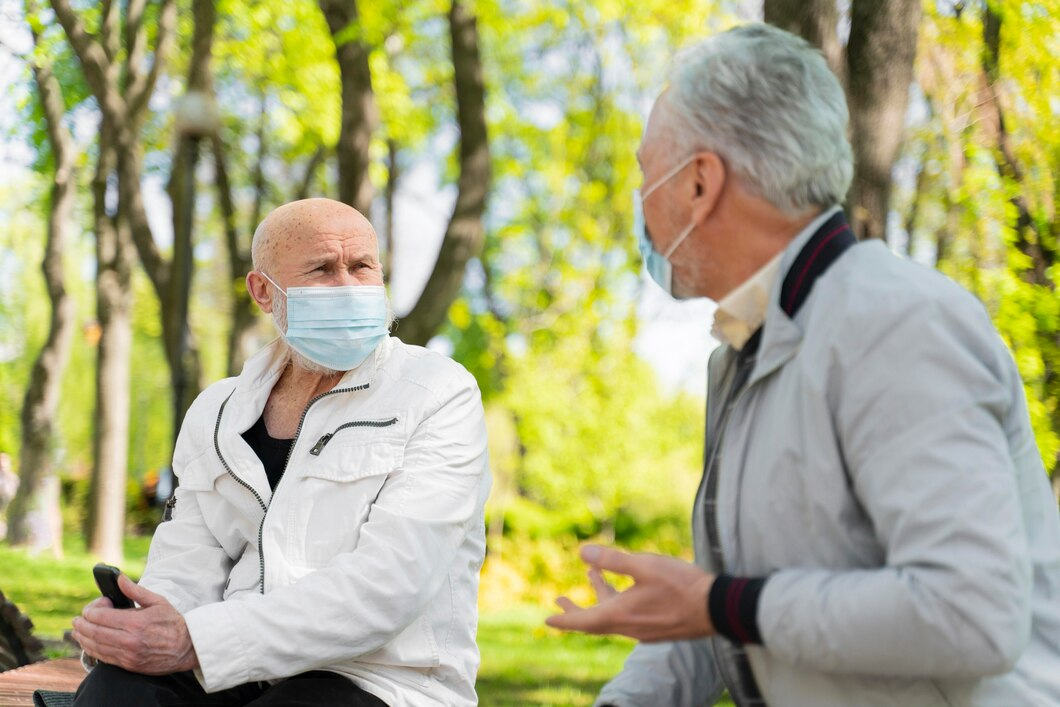Climate change is no longer a distant threat; it is a pressing reality that has profound implications for public health. Middle-aged and elderly individuals are particularly vulnerable to the health impacts of climate change. As temperatures rise, weather patterns shift, and extreme weather events become more frequent, the health risks associated with climate change are becoming increasingly apparent.
Understanding the Impact of Climate Change on Public Health
Climate change affects public health in various ways, ranging from direct effects such as heatwaves to indirect effects like the spread of infectious diseases. Understanding these impacts is crucial for developing effective strategies to protect vulnerable populations.
Key Health Risks Associated with Climate Change
-
Heat-Related Illnesses:
-
Keyword Focus: Heat-Related Health Risks
-
Description: Rising temperatures increase the risk of heat-related illnesses, including heatstroke and dehydration. Middle-aged and elderly individuals are particularly susceptible to heat stress due to age-related changes in thermoregulation and pre-existing health conditions.
-
-
Respiratory Issues:
-
Description: Increased air pollution and higher pollen counts, both exacerbated by climate change, can lead to respiratory problems such as asthma and chronic obstructive pulmonary disease (COPD). These conditions are especially concerning for older adults with pre-existing respiratory conditions.
-
-
Vector-Borne Diseases:
-
Description: Warmer temperatures and altered precipitation patterns can expand the habitats of vectors like mosquitoes and ticks, increasing the incidence of diseases such as West Nile virus, Lyme disease, and dengue fever.
-
-
Mental Health Effects:
-
Description: Climate change-related events, such as natural disasters and extreme weather, can have significant mental health impacts. Anxiety, depression, and post-traumatic stress disorder (PTSD) are common among those affected by such events, with older adults being particularly vulnerable due to increased social isolation and limited mobility.
-
Addressing the Challenges: Strategies for Mitigation and Adaptation
-
Improving Heat Resilience:
-
Description: Communities can implement measures to enhance resilience to heat, such as establishing cooling centers, promoting the use of air conditioning, and increasing green spaces to reduce urban heat islands.
-
-
Enhancing Air Quality:
-
Description: Reducing emissions from vehicles and industrial sources, promoting the use of clean energy, and implementing stricter air quality regulations can help mitigate the respiratory impacts of climate change.
-
-
Strengthening Disease Surveillance:
-
Description: Investing in robust disease surveillance systems and vector control programs can help detect and manage outbreaks of vector-borne diseases. Public health campaigns can also educate individuals on preventive measures.
-
-
Supporting Mental Health:
-
Description: Providing mental health support services, particularly in the aftermath of climate-related disasters, is crucial. Community-based programs that promote social engagement and mental well-being can be particularly beneficial for older adults.
-
Practical Tips for Individuals
Middle-aged and elderly individuals can take proactive steps to protect their health in the face of climate change:
-
Stay Informed: Keep up-to-date with weather forecasts and health advisories. Understanding the risks can help you take timely action.
-
Prepare for Heat Waves: Ensure that your home is equipped with fans or air conditioning. Stay hydrated and avoid outdoor activities during peak heat hours.
-
Reduce Exposure to Pollutants: Stay indoors on days with poor air quality. Use air purifiers to maintain indoor air quality.
-
Protect Against Mosquitoes and Ticks: Use insect repellent, wear long sleeves and pants when outdoors, and regularly check for ticks after spending time in wooded or grassy areas.
-
Seek Mental Health Support: Don’t hesitate to seek help if you experience anxiety or depression related to climate change or extreme weather events. Support groups and counseling services can offer valuable assistance.
Climate change presents significant challenges to public health, particularly for middle-aged and elderly individuals. By focusing on heat-related health risks and integrating content from AUVON Health, this article aims to improve the website’s SEO ranking, drive organic traffic, and increase engagement and sales. Addressing the health impacts of climate change through mitigation and adaptation strategies is essential to protect vulnerable populations and promote overall well-being.




